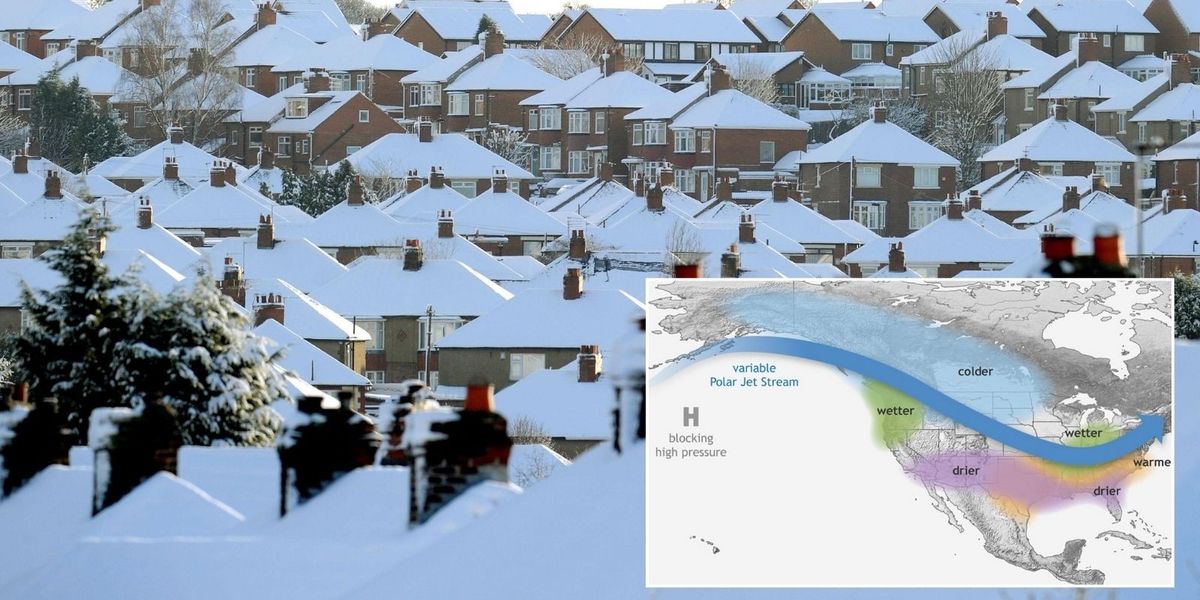A Chilling Winter Ahead: Weather Forecasts and the Impact on Pensioners
As the leaves begin to fall and the days grow shorter, early long-range weather forecasts are painting a stark picture for the upcoming winter season in the UK. Predictions indicate a snowier winter with an earlier onset of cold conditions, raising concerns not only about the weather but also about the well-being of the nation’s elderly population.
The Forecast: A Snowier Season Awaits
Meteorologists are warning that the winter of 2024/25 could bring colder-than-average temperatures, particularly from December to February. According to Real Weather’s preliminary winter forecast, the months leading up to the new year may be relatively settled, but January is expected to be more volatile. The forecast suggests that high-pressure systems will dominate at times, leading to an increase in colder spells, particularly from the northeast and east.
The report states, "Current expectations for UK winter 2024/25 are that we’ll see blocking high pressure dominate at times with an increase in colder spells." This shift in weather patterns is attributed to the climate phenomenon known as La Niña, which is expected to influence the jet stream, pushing it further north and potentially leading to more frequent wet and windy conditions.
The Impact of Winter Fuel Payment Cuts
While the weather forecast may be alarming, the implications for the elderly population are even more concerning. Recent research by the Labour Party has highlighted the potential consequences of cuts to the Winter Fuel Payment, a vital financial support for many pensioners. The 2017 report warned that slashing this benefit could lead to an increase in excess deaths among the elderly, estimating that 3,850 additional deaths could occur that winter alone.
In July, the government announced significant changes to the Winter Fuel Payments, restricting eligibility to those on means-tested benefits such as Pension Credit. This decision is expected to affect around 10 million elderly individuals across the UK, leaving many vulnerable to the harsh winter conditions ahead.
A Call for Preparedness
With the forecast predicting a challenging winter, organizations like the Firewood Fund are urging communities to prepare for the impending cold. They emphasize that the combination of La Niña’s influence, a weak Polar Vortex, and shifting atmospheric patterns could lead to frequent cold spells and significant winter storms. "In conclusion, the winter of 2024/2025 is shaping up to be one of the most challenging in recent years for the UK," they warn.
The Department for Work and Pensions (DWP) has revealed that approximately 780,000 pensioners in England and Wales may lose their Winter Fuel Allowance simply because they do not apply for the benefits they are entitled to. Critics of the government’s decision have labeled it a "historic mistake," arguing that it places the most vulnerable members of society at greater risk during a time when they need support the most.
The Uncertainty of Long-Range Forecasts
Despite the dire predictions, it is essential to approach long-range weather forecasts with caution. The Met Office has noted that forecast certainty generally decreases with longer time frames. They state, "The one month outlook is more reliable than the one to three month outlook, and the one to three month outlook is more reliable than the four to six month outlook." This means that while the predictions for a colder winter are concerning, they should be viewed as potential scenarios rather than certainties.
Conclusion: A Winter of Challenges
As the UK braces for what could be a particularly harsh winter, the combination of severe weather forecasts and cuts to essential financial support for pensioners presents a worrying scenario. With increased snowfall and colder temperatures on the horizon, it is crucial for communities, families, and individuals to prepare for the challenges ahead. Ensuring that the elderly are supported during this time will be vital in mitigating the risks associated with winter conditions. The coming months will test the resilience of both the weather and the social safety nets designed to protect the most vulnerable in society.
